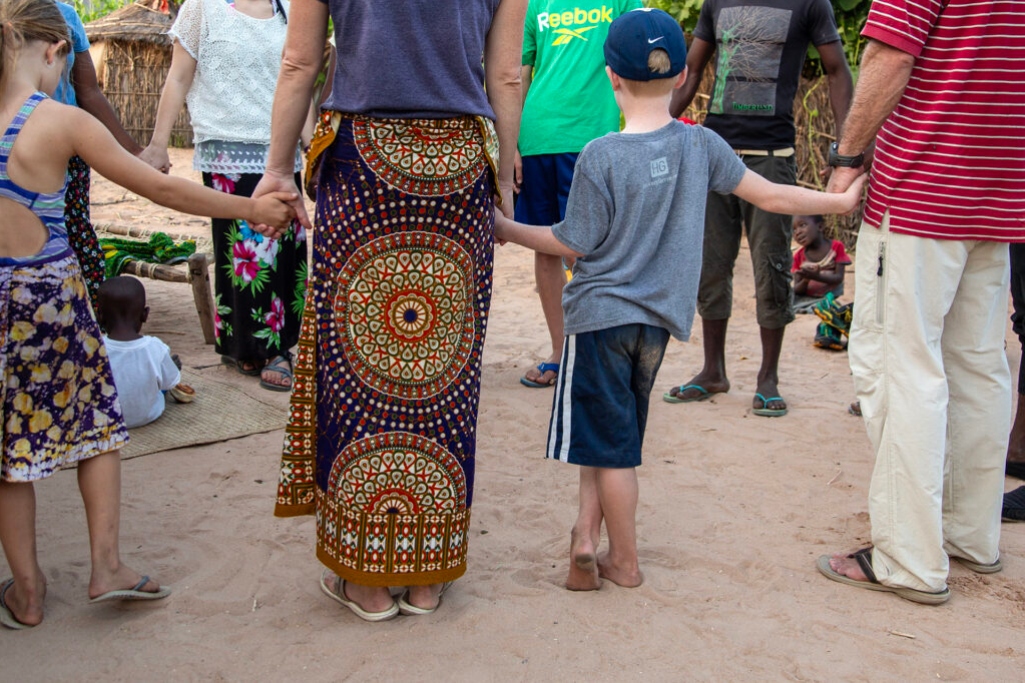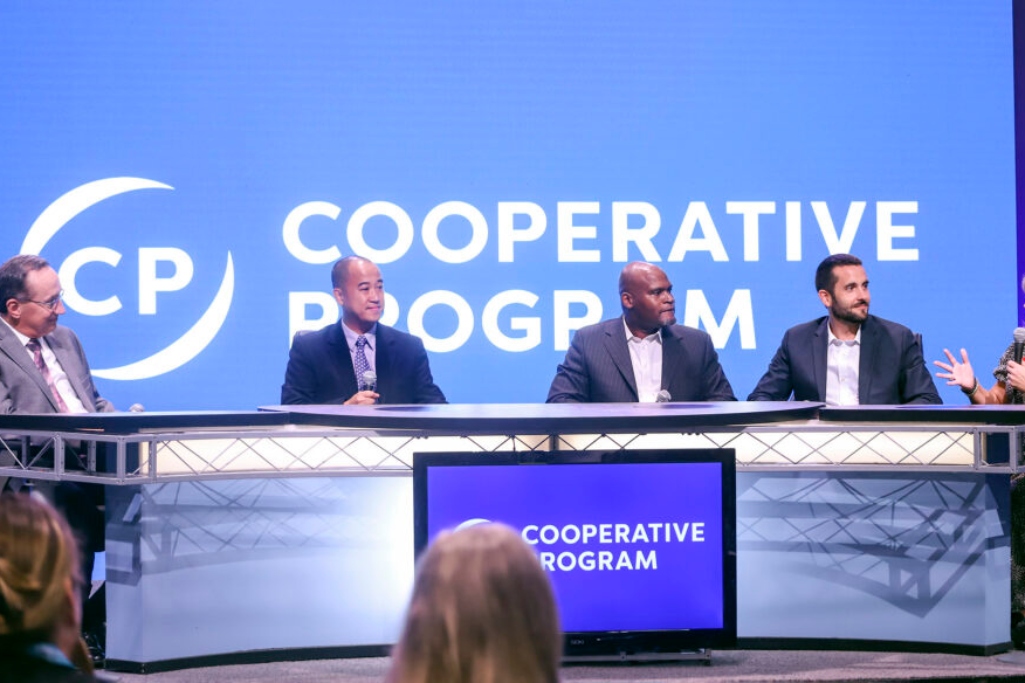
Jimmy Bledsoe speaks to Kentucky Baptist Convention Mission Board members at their December meeting.
LOUISVILLE, Ky. — Jimmy Bledsoe has served as an International Mission Board (IMB) missionary for 13 years, but his latest assignment has taken him to Southern Baptist Theological Seminary (SBTS). He explained to Kentucky Baptist Convention Mission Board members Tuesday how his work there is to develop a pipeline to reach the nations with the gospel.
As an IMB liaison at Southern and a member of Walnut Street Baptist Church, he said his role involves dispelling “a lot of myths about the IMB and to introduce young Southern Baptists to who we are.”
Bledsoe, who has pastored churches in Missouri, Indiana and Illinois, said it is “amazing that you have to explain the Cooperative Program and why we give.”
“Reaching the nations together is what we are about,” he said. “We are grateful for local churches who send out missionaries to the nations.”
“I am thankful for Kentucky Baptists and their giving to the Cooperative Program that keeps missionaries like Jimmy Bledsoe on the mission field,” said Todd Gray, Kentucky Baptist Convention (KBC) executive director.
Recalling an experience he had in 1993 as a college student in Missouri, Bledsoe said he was on a short-term mission trip on the shores of Lake Victoria when he “felt a prick of the heart” about mission work in Uganda. “I heard the voice of the Lord in my heart, calling me to be a part of what He is doing among the nations.”
Bledsoe said “the calling was there — and Africa gets in your blood.” He spent 13 years in Africa, with his focus on theological training.
“There are healthy African churches sending out missionaries to the nations,” he said. “We are trying to deploy new missionaries. The career long-term pathway is the least traversed today. More want to go and give two or three years and then try something else.”
Bledsoe said the important question to ask is “where is the most strategic place you can be for Jesus? That is an important question to answer,” he said, noting his hope to return to mission work in Kenya.
He emphasized the importance of the Lottie Moon Christmas Offering — of which 100% goes directly to missionaries. Global realities are that there are more than 8 billion people on the planet, and 174,202 people die every day without a saving relationship with Christ, Bledsoe said, adding that in Sub-Saharan Africa, there are 56 people groups that have “absolutely no gospel presence among them — there’s not a viable church in those people groups. There is a lot of lostness and sin in that part of the world, and the solution to man’s greatest need is the gospel of Jesus Christ.”
He said the missionary task involves people being sent out by local churches, going into a new place, a new people group, where one may need to learn a new language and eat new foods.
“We do it for the sake that God be glorified and people hear the gospel,” he said. The dynamic involves evangelism, followed by discipleship, then church formation, leadership development and then an exit toward a partnership. Bledsoe mentioned his excitement about the Kentucky Baptist Convention’s partnership with Kenya, which involves a vision tour next October.
He stressed the “great responsibility” for missionaries and local (in this case, Kentucky) churches to be connected.
“We have not always been the best at staying connected to local churches,” he said. “Southern Baptists can unite around missions, but sometimes missionaries are faceless and nameless to most churches. Each missionary has a portfolio of 20-23 churches that they are connected to.”
He urged churches to respond to missionary contacts. “I have 25 of those churches (in portfolio), but I have only heard from one,” he said.
Bledsoe related several personal experiences that serve as encouragement in mission endeavors. Once, when out fishing with his father, the boat was damaged, and his father handed him a rope and told him to “hold the line” while he went for help. Bledsoe said he didn’t hold the line tight enough, resulting in the boat hitting rocks and sustaining more damage.
Bledsoe said there is a great need for people to uphold theological truth and sound doctrine.
“The church is responsible to hold the line of truth,” he said. “We have a great task before us.”
By 2050 it is projected that 40% of the world’s Christians will live in Sub-Saharan Africa, Bledsoe said, but only 10% of pastors in that region receive sound theological teaching and training.
“The need is desperate to have people who can go there and teach truths, to clarify the gospel and hold the line of theological soundness for churches,” he said.
Bledsoe finished with a powerful story involving shoes. He told of the time his father called and told him he was going fishing with Bledsoe’s uncle, and asked Jimmy to pray for his father to have clarity in a gospel conversation with the lost uncle.
Then came a devastating phone call. There had been an accident on the lake. Not much later, the news came that the uncle had been found floating on top of the lake, and Bledsoe’s father was found at the bottom of the lake.
Investigators told the family that in cases like that, the one on the bottom of the lake is the one who tried to save the one floating.
Inside that fishing boat, the only thing that was found were his father’s shoes. “Your dad took off his shoes to save the life of a man who was lost,” Bledsoe was told. The message prompted him to ponder: When are you going to take off your shoes, leave your comfort, to reach the lost?
(EDITOR’S NOTE — This story originally appeared in Kentucky Today.)


